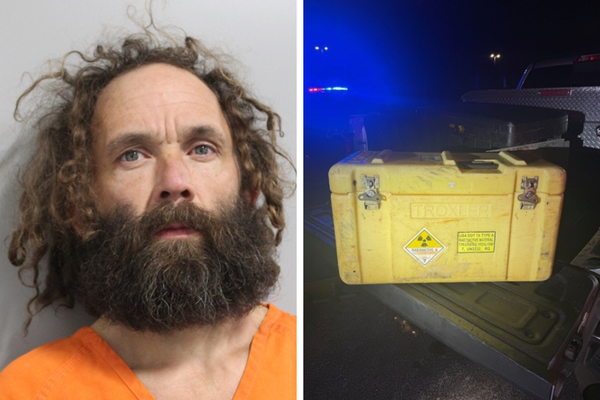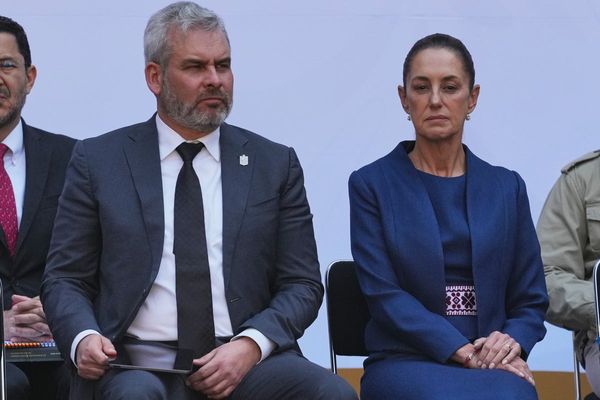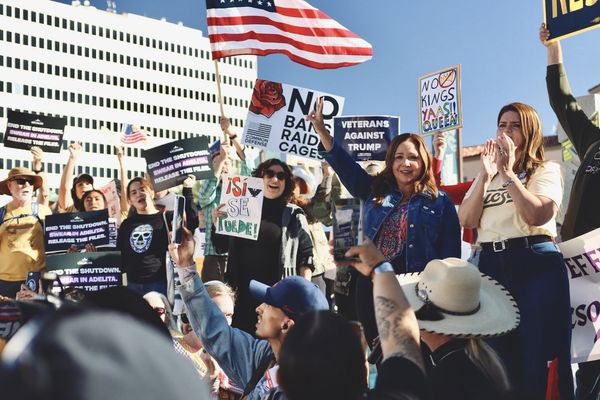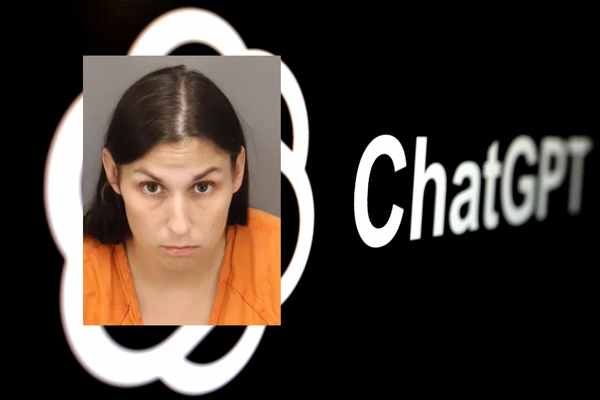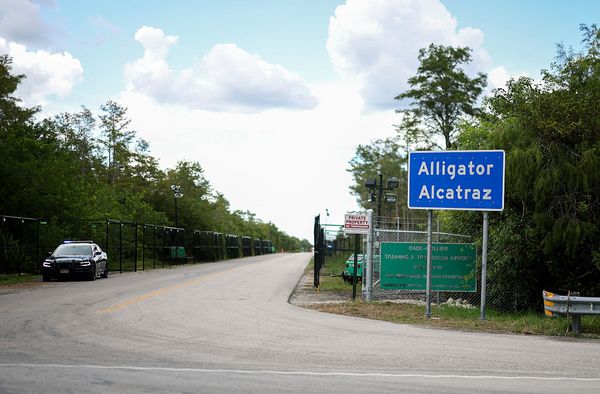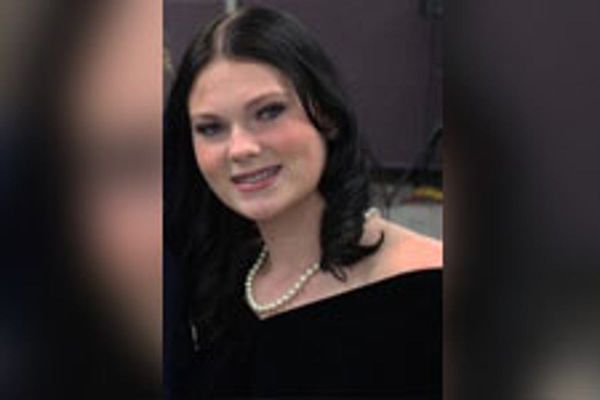
It’s midnight on a Saturday at a recent electronic music festival in England and a young man has collapsed dancing under the bamboozling influence of a cocktail of drugs. Medics are quickly on the scene and take him to the side of the stage, and as he comes around he reveals he has taken large doses of LSD and ketamine.
PsyCare UK, a charity staffed mostly by volunteers trained to de-escalate psychedelic crises, or so-called bad trips, are called to assist. Two of its “tripsitters” rush to the aid of Harry (not his real name), who is in his early 20s, intending to cajole him back to a cosy bell tent where the charity provides one-on-one support, colouring books and rehydration salts.
This summer, more than a dozen festivals across England will employ PsyCare’s services amid an increasing appreciation of “audience welfare” and non-judgmental care for ravers. Meanwhile, the Home Office has been toughening up the regulatory environment for drugs testing, making harm-reduction organisations acquire costly and time-consuming licences to provide non-public testing of police seizures – a hurdle that critics say could endanger the lives of festival-goers.
Many people take far more drugs than usual in the high-stimulus environments of festivals. Throw sleep deprivation, dehydration and hunger into the mix and it makes for a potentially deadly combination, especially for those already struggling. “It’s a recipe for mental health crises. Some people come to festivals in quite difficult places,” says Adam Waugh, one of the coordinators at PsyCare, founded in 2008 and since then present at more than 150 events.
“People often do not understand how to manage extreme drug reactions, which are temporary in the vast majority of cases. Imagine having a bad trip and then it being compounded by being violently restrained by security, handcuffed or worse.”

These harsh realities are often overlooked. Instead, anti-drugs, “Just Say No” dogma reigns. The dance music carnival attended by the Guardian does not want to disclose its identity because the local council’s safety advisory group (Sag) that provides its licence is anxious not to be seen to tacitly approve drug use. Other festivals have U-turned entirely on the service for fear of authorities kicking up a fuss due to the “admission” of illegal drugs on-site.
“We have found it challenging to put in place some of the protocols we believe are most effective,” says one of the festival co-founders. “If someone is in a fragile mental state then they need to be looked after; to ignore the fact people do drugs means we can’t help mitigate the risks.”
PsyCare and its 30 staff members therefore had to keep its giant chart warning of harmful drug interactions – ketamine and alcohol, for example – within its tent rather than outside. When placed prominently, the poster often draws curious festival-goers to congregate and discuss what not to do. “They start asking questions they were too scared to ask,” says Amanda Guzinska, senior manager at PsyCare, which survives on donations, grants and a small amount of income from festivals. “They say: ‘‘Why weren’t we taught this in school?’”
The services of drug checking charity The Loop had also been sought by the festival. But despite police support the Sag allegedly blocked the overtures, even though there has never been a death at a festival The Loop has attended, in part since contaminants and high-strength drugs in circulation can be swiftly identified. The Home Office effectively put an end to its work at Parklife festival last month, insisting upon that aforementioned licence despite The Loop having provided a non-public drug checking service since 2014.
The decision sparked condemnation led by Fatboy Slim, as attendees were left to play “Russian roulette” with their lives. A woman at the festival attended by the Guardian was admitted to hospital in a coma after allegedly having an allergic reaction to two ecstasy pills. It is understood The Loop has agreed not to conduct any festival testing this summer while awaiting a decision on its licence application. This decision caused plans to provide non public drug checking services at Secret Garden Party, and elsewhere, to be scrapped. The Loop did not wish to comment on this article. However, certain Festival Republic events, including Reading & Leeds, and Boomtown, are set to test confiscated drugs on-site through two other organisations this summer but without a licence.
“Why not try to minimise the collateral damage of drug use – people are going to do it either way,” says Nige Netzband, a team leader at PsyCare and counselling psychologist. Rates of drug use and deaths have soared during a half century of prohibition, whereas harm reduction services have been shown to positively influence behaviour.
There is a growing awareness about how to “safe sesh” and the wider club and festival drug culture is fast changing, too. “Way more people are using psychedelics recreationally,” adds Netzband, a veteran of almost a decade providing harm reduction services in the UK and abroad. “There’s more of a community feeling at certain festivals which used to be far more tense when many more people were drunk, and high on coke and speed. Mushrooms and LSD have completely changed up the vibe.”

But it’s not all rainbows and butterflies, says Dr David Luke, associate professor of psychology at the University of Greenwich and a member of the PsyCare board of advisers. Hallucinogens can leave people in deeply delusional states and trigger psychotic breaks. “Psychedelic experiences can bring about massive shifts in worldview and if you’re not totally prepared it can push you over the edge,” he warns. PsyCare staff have been bitten, had their hair pulled out, and suffered punches at the hands of their service users, a handful of whom have had to be sectioned when all other interventions have failed and they still pose a risk to themselves or others.
Darren Turner, a volunteer at PsyCare, claims that in some cases security staff have exacerbated psychedelic crises which might otherwise have been de-escalated. “They can go straight for restraining: getting people on to the floor and putting their knees on their backs.” In one case, this deepened the distress of one service user – causing him to somehow escape their hold, cut his head, and eventually get taken away by police to be admitted to a mental health institution. Netzband adds: “If you start shouting at a dog, it’s going to antagonise the situation and it will bark back at you.”
Back on the dancefloor, Harry initially resists the invitation to attend PsyCare’s bell tent. “He’s going to kick off, we’re going to coax him up to you,” one of the medics says. And lo, later in the night, dazed and confused, he eventually finds himself shepherded to the snug shelter and early in the next afternoon he is sat around the fire, able to properly converse again. “People are a bit shell-shocked if they’ve had a really heavy experience, but often they’ll come back a day or two later with a beaming smile,” says Netzband. “They’re like, ‘I was freaking out, but you sorted me out.’ And then they’ll give you a hug.”
• In the UK, the charity Mind is also available on 0300 123 3393 and Childline on 0800 1111. In the US, Mental Health America is available on 800-273-8255. In Australia, support is available at Beyond Blue on 1300 22 4636, Lifeline on 13 11 14, and at MensLine on 1300 789 978
